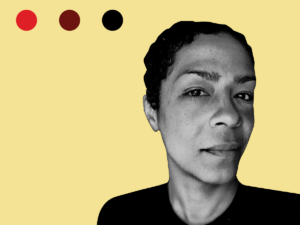
October 22, 2019; Foreign Policy and The Conversation
We are in the midst of the season in which the annual Nobel prizes are announced. All told, there are 15 Nobel laureates this year in six areas. The literature prize continues to be a controversy with two nominations: one was to make up for last year when the prize was withheld due to an internal scandal; the other is to Peter Handke, who has been labeled a fascist and undeserving.
There was little controversy surrounding the pick for Economic Sciences, although maybe there should be. The Nobel went to a trio of people who have been applying a novel, “scientific” methodology to understand global poverty and the best tools to alleviate it: Abhijit Banerjee, Esther Duflo, and Michael Kremer.
What’s groundbreaking about their work, and what the Nobel celebrates, is that they did not simply develop theories about poverty and how to alleviate it; instead, they went into the field and conducted experiments to see what works and what doesn’t. This reportedly follows in the footsteps of an earlier Nobel laureate, Angus Deaton, who is credited for helping pioneer “development” economics.
One example is in the area of education. The question was how to best address issues of poor educational results in areas with extreme poverty. Going into the field, partnering with local NGOs, three approaches were tried: providing free lunches, on the theory that if students are hungry they will not do well; providing access to high quality textbooks, on the theory that this will give students better access to learning; and providing teaching assistants on the theory that struggling students need special attention.
Using a process of randomly selecting schools to receive each of the three interventions, it became clear that free lunches and quality textbooks made little or no difference at all. In fact, the only approach that seemed to work was to provide teaching assistants to help students individually.
Sign up for our free newsletters
Subscribe to NPQ's newsletters to have our top stories delivered directly to your inbox.
By signing up, you agree to our privacy policy and terms of use, and to receive messages from NPQ and our partners.
Although still considered experimental, using randomized control trials (RCTs) is credited with having changed development economics. A white paper that describes the reasoning for the award stresses the importance of this work because of the practical applications it provides. A well-designed theory, the argument goes, can help us to understand what might cause extreme, global poverty, but it cannot help with understanding what will work to alleviate it. It is through practical, scientific experimentation and data collection that we can learn what works and then apply it to larger groups.
On the other hand, there are some who criticize this approach. An article posted at Foreign Policy by Sanjay Reddy of the New School for Social Research offers several concerns with the RCT approach. One is that the conclusions drawn from RCTs often reinforce what’s already known through common sense. (Treating communicable diseases benefits the broader community, for instance.) More damning criticism comes in the form of the limited scope of the experiment. The example cited is that in an experiment on how economic incentives affect drinking habits of pedicab drivers in India, the results looked promising. A broader look, however, indicated that the drivers’ drinking habits shifted from daytime hours to evening, and this may have had an impact on domestic violence issues.
The approach has also been accused of colonialism, since these experiments are generally conducted on poor people living in an already poor country. Usually, it’s a country that’s not the one where the people conducting the test are based, and the host country isn’t always happy about it.
Worst of all, there are questions about the presence (or absence) of informed consent or any of the oversight that would be traditional in a medical experiment. In social experiments involving education and medical treatment, is it even ethical to give one group a promising intervention and withhold it from another? The participants become objects of the experiment, not subjects.
One positive that should be mentioned is that Duflo is the youngest person to ever receive the award for economics and only the second woman to be recognized in the field. Banerjee, her husband, is the third-ever non-white person to receive the award in Economics. Hopefully, this award can open doors for the continued diversification of the economics award, but it should also raise some very significant questions about the approach that is now considered promising.—Rob Meiksins













